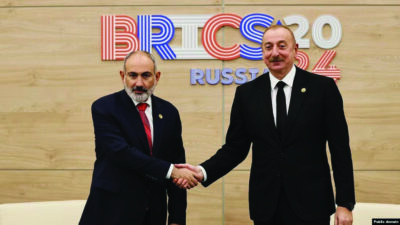By Edmond Y. Azadian
There is euphoria in Armenia’s news media. The political pundits there are having a field day speculating and commenting on the impact the South Sudan referendum may have on the Karabagh conflict, which has been confined to a legal straitjacket, juxtaposing the principles of territorial integrity with the self-determination of minorities. Baku, understandably, is mute on the issue.
Indeed, after 50 years of civil strife and two decades of active war, with 2 million casualties, South Sudan finally was allowed to hold a referendum last week, at the conclusion of a deal brokered in 2005 by the US government.
Sudan is one of the oil-rich countries in the heart of Africa. It seems that war and political tensions gravitate towards the oil wells of the world.
Sudan has a population of 40 million. South Sudan has only 4 million population but its territory produces 80 percent of Sudan’s entire oil output, some 490,000 barrels a day, the third biggest in sub- Saharan Africa. That, of course, could become a bone of contention between the South and the North, but the 2005 peace agreement has provisions of oil revenue sharing between both entities.
The optimism in Armenia is derived from the fact that the principle of minority self-determination is gaining prominence over territorial integrity. Unfortunately, that optimism is not fully justified because each and every similar case has political determinants in the background, which outweigh justice, historical right and international law.








